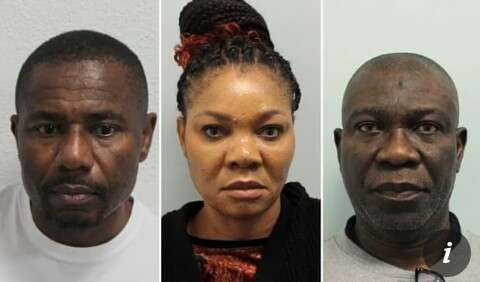
A serving Nigerian Senator, Ike Ekweremadu, has been found guilty of human trafficking and attempted organ harvesting. The 60-year-old Nigerian politician was pronounced guilty alongside his wife, Beatrice, and Dr Obinna Obeta by the Old Bailey Court on Thursday.
On May 5 2022, a 21-year-old Nigerian man reportedly approached the Staines Police Station to report that he had been trafficked from Nigeria to the UK to transplant his kidney. Upon his arrival and kidney screening at The Royal Free Hospital in London, the consultants suspected that the circumstances were not normal and refused to go ahead with the transplant.
The Crown Prosecution Service reported that the young Nigerian slept on the streets for three days before approaching the Staines Police station.
Upon investigation, it was discovered that the Nigerian senator and his wife had recruited the young man from Lagos, Nigeria, to let go of one of his kidneys for their daughter on the condition that he would be given £2,400 or £7,000 and a job in the United Kingdom.
“Their daughter, Sonia Ekweremadu, suffers from deteriorating kidneys and needs regular dialysis. Working together, the Metropolitan Police and CPS found evidence that her parents, Ike and Beatrice Ekeweremadu, conspired with Dr Obeta to identify individuals in Nigeria whose kidneys might be harvested for Sonia’s benefit,” the Crown Prosecution Service said in a statement. “The victim, in this case, was recruited in Lagos, Nigeria. At the time, he was selling telephone parts in public markets.”
On June 23, 2022, Mr Ekweramadu and his wife, Beatrice Ekweremadu, were arrested in the UK by the London Met Police and were charged with conspiracy to traffic a child to the UK to harvest his organs.
The Court established that the said boy was 21 and was not a minor but that was not enough not to acquit the Nigerian politician.
“The convicted defendants showed utter disregard for the victim’s welfare, health and well-being and used their considerable influence to a high degree of control throughout, with the victim having a limited understanding of what was really going on here,” Joanne Jakymec, the chief prosecutor for CPS, said after the judgement on Thursday.
Mr Ekweremadu, his wife, and Dr Obeta would be sentenced on a later date, and they could get up to 10 years each in prison.
Who is Ekweremadu?
Ike Ekweremadu is a Nigerian politician who served as the Deputy Senate President of Nigeria’s National Assembly from 2007 to 2019. He was first elected as a senator representing Enugu West Senatorial District in 2003, and he was reelected in 2007, 2011, 2015, and 2019.
Ekweremadu is a member of the People’s Democratic Party (PDP) and has held several leadership positions within the party, including serving as the Secretary of its Board of Trustees. He contested to be the governorship candidate of his party in Enugu State at last year’s primary election before losing out.
Laws to combat human trafficking and modern slavery in the UK
The UK has a comprehensive legal framework in place to combat human trafficking and modern slavery. The main legislation is the Modern Slavery Act 2015, which defines modern slavery as including slavery, servitude, forced or compulsory labour, and human trafficking.
Under the Act, it is a criminal offence to:
- Arrange or facilitate the travel of another person to exploit them
- Hold another person in slavery or servitude
- Require another person to perform forced or compulsory labour
- Facilitate or participate in the trafficking of another person
The Act also established the role of the Independent Anti-Slavery Commissioner to provide independent advice and monitoring to the government on the prevention of modern slavery and the protection of victims.
In addition to the Modern Slavery Act, there are other laws in place to combat human trafficking and modern slavery in the UK, such as the Immigration Act 2016 and the Criminal Finances Act 2017.
The UK also has a National Referral Mechanism (NRM) to identify and support victims of human trafficking and modern slavery. The NRM is a framework for identifying victims, assessing their needs, and providing them with appropriate support and protection. It is operated by the UK government in partnership with NGOs and other agencies.
Overall, the UK has a robust legal framework and support system in place to combat human trafficking and modern slavery, but there is still more work to be done to prevent and address these crimes.













0 Comments